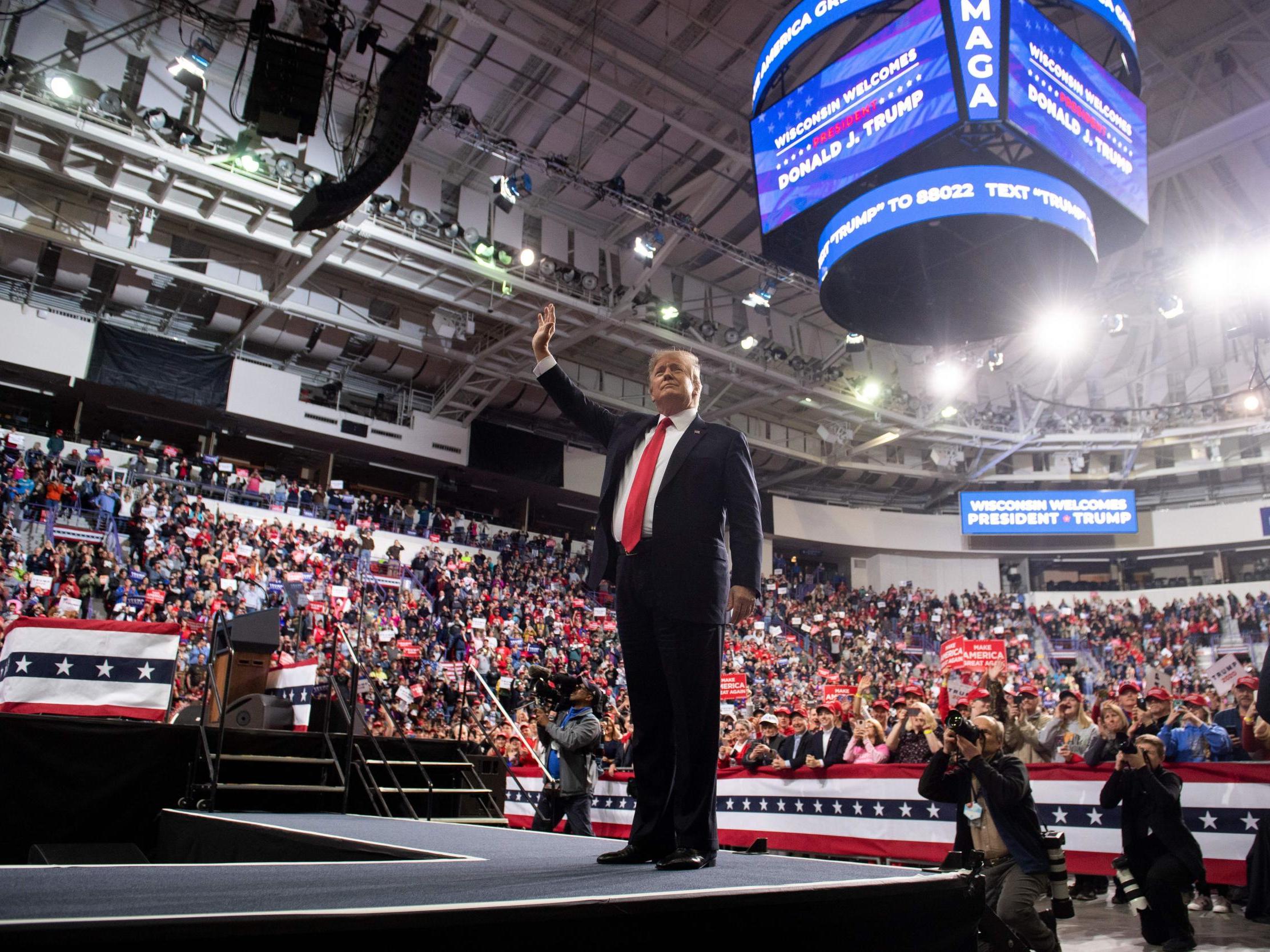The Independent's journalism is supported by our readers. When you purchase through links on our site, we may earn commission.
The US Constitution wasn't really supposed to include all Americans — as a new Broadway play reminds us
We're proud to be Americans, because at least we know we're free. Except we're not


You’d be forgiven for thinking What The Constitution Means to Me, the play appearing on Broadway through June, might be something like a history class with production design. In terms of structure and tone, playwright and lead Heidi Schreck is not unlike your most captivating teacher, except the show is definitely not about the past. After all, the United States Constitution is a living document, and we would do well to remember that democracy is a dynamic process that requires our input.
What The Constitution Means to Me interrogates the American democratic crisis, though Schreck never utters Donald Trump’s name. Instead, she tells us, when she first walks out on stage, that the whole show was born a few years ago, while she was looking at the Constitution “for various reasons” (at this, the crowd lobbed a grim chuckle.)
Schreck’s personal take on the United States’ Constitution focuses on the pain of her mother, grandmother, and great-grandmother before her, and all the ways that women are less than people in the eyes of the law. Pacing through a traumatic lineage of “passive resistors” to various iterations of oppression, Schreck unpacks the gruesome reality that defines daily life for American women. A piercing list of statistics snaps us out of the exuberance that drives much of the show. Did you know that four women are murdered every day in the United States? That one in three women are assaulted in their lifetimes? That one in four are raped? Schreck concludes this segment by declaring that there have been more women killed by domestic violence than in any war, including 9/11 — and that’s not even all the women murdered by men, just the ones who were murdered by the men who supposedly love them.
From here, Schreck unpacks the legal protections which exist for women (or lack thereof); the current state of reproductive rights, rapidly unfurling at the state level; and the legal argument that the sovereignty of our bodies is not formally acknowledged in a document that was supposedly about guaranteeing basic human rights. Except the Constitution was never intended to be for everyone. It was written by a bunch of dudes in wigs with their own interests in mind.
When we reflect on the inherent inequality of our founding document, it's clear the intended ruling class remains largely intact. What The Constitution Means to Me is ultimately about insisting, as Ruth Bader Ginsberg once did, that these things must change. “‘We, the People,’ were once white, property-owning men,” Ginsberg said. “That concept, ‘We, the People,’ has become ever more embracive. Native Americans were originally not part of ‘We, the People,’ nor were people held in human bondage, women, newcomers to our shores. Today, ‘We, the People,’ has a marvellous diversity, wholly absent in the beginning.”
Up until 9 November 2016, I was operating under the assumption that the magic of American democracy guaranteed a future in which “We, the People” would truly mean that. All at once, that fantasy was shattered. Both Trump’s presidency and Schreck’s play make it clear that our current unjust hierarchy can be traced back to our origin story.
See, the Constitution is the crown jewel of American exceptionalism. We believe we are the greatest country in the world, because we are supposedly a government by and for the people. We're proud to be Americans, where at least we know we're free. Except, of course, we’re not. The white supremacist capitalist patriarchy makes it so that a bunch of old, white men are in charge, and the rest of us are meant to stomach that state of oppression as “just the way things are." According to the U.S. Constitution, that was the plan all along.
The day after the 2016 election, I woke up to the reality of a Trump presidency, and immediately thought, “Holy shit, I have to do something about this.” I was hardly the only one who experienced this sense of urgency.
I’m a journalist, so I began researching and reporting. For more than two years now, I have been speaking with other young people who were struck by a political awakening in 2016. There are plenty of exceptional examples of those who snapped into action running for office or starting non-profits, but I also found a paradigmatic shift in our cultural understanding of civic participation. In short, the younger generations are no longer willing to accept politics as a thing important men do in a room somewhere.
I saw What The Constitution Means to Me as I was making sure all the commas were in the right place in the book that has come from all that research and reporting. At the crux of the shift among millennials and Gen-Z is a matter of political agency: We are insisting on a role in a government that is allegedly by and for the people. In coming together to redefine the political landscape, we must be willing to raise our voices to interrogate all sources of authority, and that inquiry traces back to the Constitution.
In Schreck’s play, this call to action ends with the next generation of debate. At the performance I saw last week, she closed the show by inviting a high school senior named Thursday Williams to the stage. The two drew slips from a can of nuts to determine what position they would argue in the question of whether or not to abolish the Constitution. When I first caught the show off-Broadway, the the roles were reversed. What emerged from both iterations of the debate — rather than a definitive answer, selected by a random audience member — is the understanding that the Constitution is at once a facilitator of our oppression and the foundation that can provide pathways for establishing true equality. One way or another, shouldn’t that be the goal of the American project?
There’s no need to mention Trump in What The Constitution Means to Me, because this moment is about so much more than the President’s apparent disregard for democracy. The very fact of his election has cast our norms and values into the air like confetti. We are re-interrogating what we value as a nation, and it is essential that we are guided by the necessity of equality.
By the looks of it, for anyone hoping this moment of experimentation builds to a truer, more equitable democracy, our struggle isn’t going to get easier any time soon. And, in navigating our new political order, it is both a curse and a blessing that we have entered this post-gravity space in which the status quo is being called into question.
I suppose there was a time when expanding the Constitution to include explicit recognition of equality seemed impossible — but so did the prospect of a bigoted old reality star becoming president.
Lauren Duca’s book How to Start a Revolution: Young People and the Future of American Politics is out in September 2019




Join our commenting forum
Join thought-provoking conversations, follow other Independent readers and see their replies